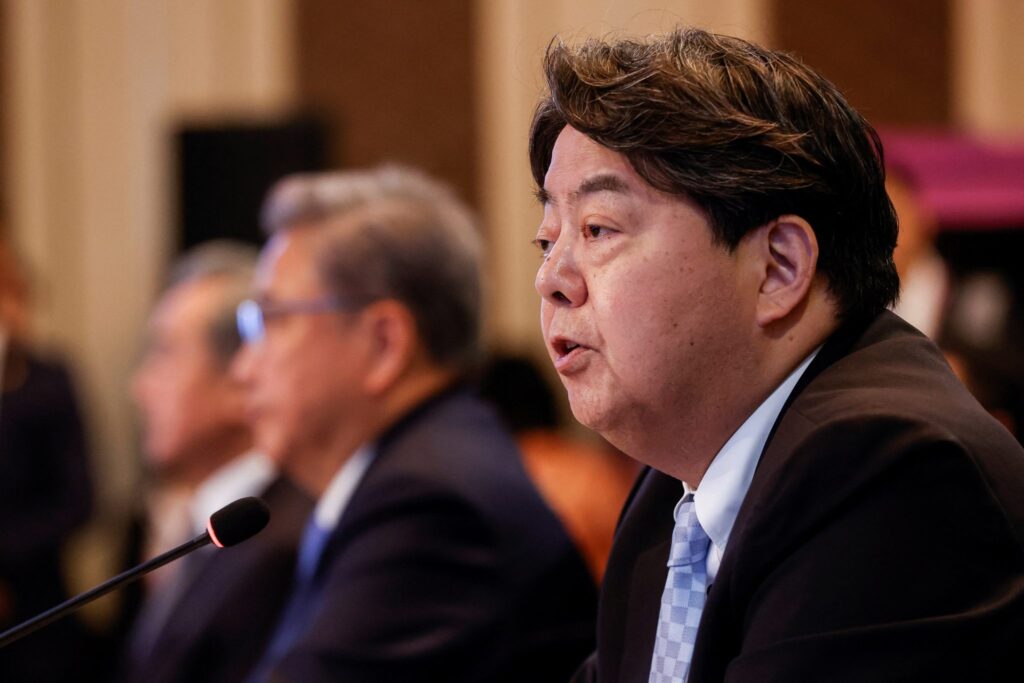Japan is taking steps to strengthen relations with five nations from Central Asia that possess rich oil, natural gas and essential mineral resources. Traditionally, Central Asia has had strong ties with Russia. However, the region is also seeking to diversify diplomatic ties in the wake of Russia’s invasion of Ukraine. While the United States and China are also stepping up their engagement in the region, Japan held its first ministerial economic and energy dialogue on Sept. 26.
“In recent years, the challenge worldwide has been how to realize carbon neutrality while balancing both economic growth and a stable energy supply,” Yasutoshi Nishimura, the economy and industry minister, said on the day.
“We would like to candidly exchange opinions on how Japan can cooperate with these efforts,” Nishimura told ministers from Kazakhstan, Kyrgyzstan, Tajikistan, Turkmenistan and Uzbekistan, who participated in the meeting either in-person or online.
Following the meeting, the ministers issued a joint statement that included promoting implementation of the Joint Crediting Mechanism, which would allow countries to count the dissemination of greenhouse gas reduction technologies to other nations as reductions in their own emissions.
U.S., CHINA GROW CLOSER TO CENTRAL ASIA
The five Central Asian nations, which are former Soviet Union republics, have deep security ties with Russia. At the same time, they have also benefited from trade and investment as key locations in China’s Belt and Road Initiative, which seeks to extend Beijing’s influence through economic cooperation projects.
The five countries have long maintained a balance between China and Russia, but their diplomatic strategies are beginning to change, triggered by Russia’s invasion of Ukraine. Kazakhstan, in particular, which shares a roughly 7,500-kilometer border with Russia, has become increasingly alarmed by Russian President Vladimir Putin’s expansionism.
While maintaining friendly relations with Russia, the five nations have not supported Russian military actions. They repeatedly have been absent or abstained in votes on recent United Nations resolutions condemning Moscow. China is taking advantage of this development.
Chinese President Xi Jinping invited the leaders of the five nations to the city of Xi’an on the same day as the Group of Seven summit in Hiroshima in May. Xi pledged to provide 26 billion yuan (530 billion yen, or $3.6 billion) in financial support and proposed cooperation on counterterrorism.
In response, U.S. President Joe Biden held a meeting with the leaders of the five nations in New York on Sept. 20. Biden proposed cooperation on border security and establishing dialogues on mineral resource development.
The United States, which geopolitically values Central Asia, often referred to as the “backyard of China and Russia,” is ramping up its engagement with these countries. German Chancellor Olaf Scholz is also set to invite the leaders of the five nations to Berlin later this month to discuss cooperation on resource transportation.
Central Asia is also becoming increasingly important for Japan, which is diversifying its sources of stable oil, gas and mineral supplies. “The Central Asian side also hopes for sustainable development unaffected by regional situations,” a senior Foreign Ministry official said. “This is a good opportunity to strengthen our access.”
Japan established a framework for dialogue with the five nations in 2004 and has continued to hold meetings among foreign ministers and experts. It intends to upgrade this framework to a summit level with the five Central Asian leaders starting next year. Foreign Minister Yoko Kamikawa, who met with her Kazakh counterpart Murat Nurtleu in New York on Sept. 20, confirmed that both sides would make arrangements ahead of the summit planned for next year.
Source: THE ASAHI SHIMBUN


